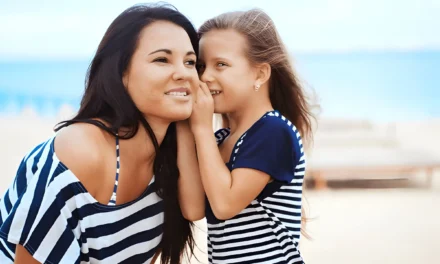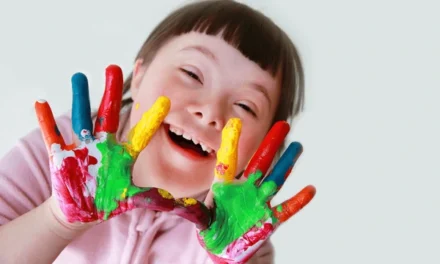As a parent, you dream of your children becoming thoughtful, self-aware, and caring. Emotional reflection is a key way to help them grow. It’s a skill that helps older children think deeply about their feelings and actions. Self-reflection boosts their brain power, improves school grades, and builds emotional smarts. These are all important for their overall growth and success.
Key Takeaways
- Self-reflection supports executive function, including emotional control, adaptability, task initiation, organization, and time management1.
- Reflection on learning material enhances understanding and retention, aiding in academic performance1.
- Self-awareness grows through reflection on feedback, increasing empathy and facilitating conflict resolution1.
- Emotional intelligence development is supported by reflection, helping children identify, express, and respond appropriately to their own and others’ emotions1.
- Strategies for teaching self-reflection include modeling the behavior, encouraging journaling, and employing art and play therapy1.
Understanding the Importance of Emotional Self-Awareness
Learning to understand your emotions is key for kids. Self-reflection helps kids see how they and how to get better2. It’s how they learn to know their feelings, what they’re good at, what they struggle with, and what they value.
Defining Emotional Intelligence in Children
Emotional intelligence (EQ) means knowing and handling your feelings. Social emotional learning (SEL) teaches kids to understand and control their emotions. It also helps them set goals, feel for others, make friends, and act responsibly3.
Being aware of yourself and controlling your feelings are big parts of SEL. These skills grow when kids reflect on themselves regularly.
The Role of Self-Awareness in Child Development
How much kids reflect on themselves can vary a lot2. But, making time for self-reflection can really help them grow. It helps them see where they can get better and make positive changes in their lives3.
Building Blocks of Emotional Growth
Practicing self-reflection can help kids grow and learn2. It makes them better at solving problems and making choices by thinking about their past feelings and experiences3. It also helps them deal with stress, become stronger, and be kinder to themselves3.
Teaching kids about emotional intelligence is very important. Self-awareness is the first step. By helping kids reflect on themselves, parents and teachers can help them succeed in school, with friends, and in life.
Creating a Safe Space for Emotional Expression

It’s important to create a safe space for kids to share their feelings. This means giving them time to think and talk about their emotions. When they do, listen and offer support, helping them grow emotionally.
Research shows that parents playing a role in teen therapy is key. It helps teens talk better and understand their feelings. This leads to better communication with friends and adults4.
Keeping therapy confidential is vital. It helps teens trust their therapists more, leading to better results4. This trust allows for deeper conversations and more progress in therapy4.
Spotting emotional issues in teens is crucial. Look for changes in mood, behavior, and overall health. Signs include feeling isolated, changes in sleep or appetite, and mood swings4. A safe space lets your child share their feelings freely.
ACEs have affected nearly 35 million U.S. children5. Positive teacher-student relationships make classrooms supportive. This environment boosts academic and social engagement5.
Environment shapes how we interact, stress levels, and motivation5. By fostering a strong parent-child bond, you create a safe space. This helps your child manage their emotions and express themselves healthily.
“When children feel safe, they are more likely to open up and share their true feelings.”
Encouraging creativity helps people express themselves fully5. Teaching students to manage emotions through reflection and mindfulness is beneficial. Safe activities improve emotional well-being, empathy, and self-awareness6.
Setting clear rules and celebrating diversity are essential. Engaging activities enhance social emotional learning6.
By focusing on a safe environment and emotional expression, you support your child’s emotional growth. This strengthens your bond and promotes healthy communication.
The Power of Daily Reflection Practices
Teaching kids to reflect daily can change their lives. It helps them understand themselves better and feel their emotions. Daily reflection lets them think about their day and learn from it. Talking about the “best part of the day” or “two truths and a lie” helps them open up and share7.
Journaling gives kids a special place to write down their thoughts and feelings. It helps them know themselves better, control their emotions, and solve problems8.
Mindfulness activities connect kids’ bodies, minds, and feelings. They learn to calm down, focus, and understand themselves better through meditation and breathing exercises9.
Using different reflection practices helps kids deal with their feelings better. It builds their confidence and helps them grow. These habits are key to knowing oneself and growing throughout life.
Developing Self-Regulation Skills Through Reflection
Teaching children to self-regulate is key for their future success and happiness10. Research shows that early self-regulation skills lead to better grades, social skills, mental health, and overall happiness later in life10. It helps them manage emotions, solve problems, and make healthy choices10.
Reflecting on emotions is a great way to improve self-regulation. By encouraging kids to think about their feelings and how to respond, you help them deal with tough situations. Active listening and asking open-ended questions help you understand your child’s feelings and guide them to self-regulate better11.
Mindfulness, like deep breathing and guided imagery, is also important11. It helps kids notice their thoughts and feelings, control impulses, and make smart choices11. Techniques like reframing negative emotions also boost emotional health and daily happiness11.
Setting routines and rules helps kids develop self-regulation skills11. A stable routine makes them feel safe and helps them manage their feelings and actions11. It’s also crucial to discourage bad coping strategies and encourage better ones like solving problems and accepting things11.
Improving self-regulation is a team effort between parents, teachers, and kids12. By supporting them, teaching strategies, and giving them chances to practice and reflect, you help them become emotionally strong and in control12.
Teaching Emotional Reflection Through Family Discussions
Family talks, especially at dinner, are great for growing emotional awareness and bonding. A “no-devices” rule at dinner makes time for real connection and talking openly. Eating dinner together is key for kids’ growth, says family therapist Anne Fischel13.
Dinner Table Conversation Strategies
Setting up daily talks, like sharing the best part of the day or “2 truths and 1 lie,” helps kids think deeply. Teaching gratitude daily can boost well-being and help through tough times.13
Active Listening Techniques
Listening well is vital for emotional growth. It makes kids feel understood and valued, strengthening family ties. Using open-ended questions with teens and pre-teens can make conversations more meaningful.13
Building Family Connection
Dr. Ross Greene’s book, “The Explosive Child,” offers a way for parents to talk with kids in a helpful way. This approach boosts emotional growth13. Teaching kids to reflect deeply early on makes them thoughtful and caring adults13.
Using Open-Ended Questions to Deepen Understanding
Open-ended questions help kids think deeply about their feelings and experiences. Instead of asking simple “yes” or “no” questions, try asking open-ended ones. For example, “What did you learn today?”14 This way, kids can share more about their day, helping them understand themselves better14.
Using open-ended questions has many benefits. They make kids think more deeply, improve their problem-solving skills, and help them grow personally14. These questions can also reveal new insights and encourage kids to reflect on their feelings14.
In counseling, open-ended questions are especially useful. They help clients explore their emotions and thoughts, building trust15. It’s important to ask clear, relevant questions that don’t lead the conversation15.
Activities like journaling and mindfulness can make open-ended questions even more powerful. Just 10 minutes a day of self-reflection can improve emotional intelligence by up to 15% in a month16. Art can also help kids understand themselves better, increasing self-acceptance by 30%16.
By using open-ended questions and self-reflection activities, you can help kids understand themselves better. This can improve their critical thinking, emotional intelligence, and overall well-being141516.
Remember, finding the right balance between open-ended and closed-ended questions is key. This creates a safe space for kids to explore their feelings15. With time and effort, you can help kids grow emotionally through open-ended questions141516.
The Role of Parents in Modeling Emotional Reflection
As parents, you are key in teaching your kids about emotional reflection. Show them how you reflect on your feelings and thoughts. Explain how you use reflection to solve problems or make choices. This way, you create important learning moments17.
This modeling shows your kids the value and process of emotional reflection. It’s a big part of being emotionally smart17.
Leading by Example
Sharing your emotional experiences with your kids helps them learn about self-awareness and managing feelings18. Reflecting on your own emotions shows them how to deal with tough feelings in a good way18. This makes your bond stronger and helps them handle their emotions better18.
Creating Teaching Moments
Adding emotional reflection to your daily talks with your kids can lead to many learning chances19. Encourage them to share their feelings and help them understand and control those emotions19. Use toys, games, books, and other fun activities to help them learn to express their feelings19.
Being a parent means more than just meeting your kids’ basic needs. It’s also about helping them grow emotionally intelligent17. By showing them how to reflect emotionally and giving them chances to practice, you’re preparing them for success in life17.
Incorporating Art and Play in Emotional Expression
Art therapy and play therapy help kids express feelings without words. Through art like drawings, kids show their deepest emotions. Therapists use special methods to understand what these expressions mean20.
Play therapy lets kids deal with feelings through play. They might play roles, use puppets, or play games. This way, they can safely show who they are21. Art helps kids feel better in a healthy way21.
Both art and play therapy are good for kids’ feelings20. At Stanford University, kids in art classes felt prouder and more confident20. Art also helps kids focus better and try harder in life20.
Working on art projects together helps kids talk better and feel their emotions20. Art in therapy lets kids share their inner world and helps therapy work better20.
Using art and play helps parents and therapists create a safe space for kids to feel and share their feelings21. Schools that mix art into learning help kids be creative and think deeply21.
“Self-expressive art helps individuals discover new depths of thinking and understanding.”21
But, cuts in arts funding hurt kids’ chances to express themselves and grow creatively21. It’s crucial to keep these resources available for kids’ emotional health and self-awareness.
Building Empathy Through Reflection Activities
Reflection activities help kids grow in empathy and compassion. They learn to see things from others’ viewpoints. This way, they understand the world better22.
Understanding Others’ Perspectives
Talking about real events, sharing stories, or reading meaningful texts teach kids about different values and beliefs. These activities boost their critical thinking and emotional skills22.
Reflective listening makes classrooms positive and safe. It helps students express their thoughts and feelings well22.
Developing Compassion
Empathy is key for social and emotional growth. Through reflection, kids learn to share and understand others’ feelings. This builds stronger connections and better conflict resolution skills22.
Studies show that brain damage can affect empathy but not learning or reasoning. Empathy helps form trust, understand others, and make better decisions23.
Reflection activities help kids develop emotional intelligence and social skills. These skills are vital for their future22.
| Technique | Description | Benefit |
|---|---|---|
| Reflection Circle | Students take turns sharing their thoughts and feelings, actively listening to their peers. | Fosters empathy, understanding, and stronger connections among students. |
| Think-Pair-Share | Students first think about a prompt, then discuss it with a partner, and finally share their insights with the class. | Encourages active listening, thoughtful responses, and effective communication. |
“Empathy is described as an emotional and cognitive muscle that strengthens with increased usage.”
Reflection activities that focus on empathy, perspective-taking, and compassion are essential. They help kids grow emotionally and socially23.
Supporting Academic Growth Through Emotional Reflection
Emotional reflection can greatly improve academic performance. By thinking about their learning process, kids can spot areas to get better and set goals. This helps them develop a growth mindset, which stays with them into adulthood and boosts their learning24.
Jeanne Gogolski, a service learning coordinator in Ohio, highlights the role of service in student growth24. Teachers are trained to link students’ experiences to their learning24. This helps students understand themselves, others, and the world better24.
The Collaborative for Academic, Social, and Emotional Learning (CASEL) lists five key SEL skills: Self-awareness, Self-management, Social awareness, Relationship skills, and Responsible decision-making25. Successful service programs make students well-rounded and thoughtful24. Connecting service to classroom lessons helps students see the big picture of their service24.
An end-of-school-year reflection worksheet helps students reflect on their year26. It covers academic achievements, personal growth, social, and emotional development, and future goals26.
| Benefits of Emotional Reflection | Strategies for Effective Reflection |
|---|---|
|
|
Halley Bowman, Senior Director of Academics at Saga Education, stresses the role of caring adults in academic success25. A safe and supportive environment is key for students to share their reflections25. SEL prompts can set a positive tone, offer a calming break, or help consolidate learning and emotional growth25.
By adding emotional reflection to the learning process, educators can nurture a growth mindset and support students’ academic performance. This approach to education prepares students to face life’s challenges with resilience and self-awareness242526.,,
Managing Challenging Emotions and Behaviors
Handling tough emotions and behaviors in kids can be tough. But, with the right methods, parents can help their kids deal with these issues well. Emotional management starts early, shaped by how kids see their caregivers27. Knowing this helps parents create a supportive space for their kids to grow their coping skills and problem-solving abilities.
Coping Strategies for Difficult Feelings
Teaching kids how to handle strong emotions can change their lives. Techniques like deep breathing and mindfulness help kids feel balanced again27. Learning to challenge negative thoughts is also key in managing feelings27.
For a more detailed guide, books like “The Dialectical Behavior Therapy Skills Workbook” offer a path to better emotional control.
Problem-Solving Techniques
Teaching kids to solve problems on their own is empowering. Parents can guide them through tough times, teaching them to find solutions and evaluate them. This not only helps with emotion management but also builds confidence and resilience.
| Coping Strategy | Benefit |
|---|---|
| Deep Breathing | Activates the parasympathetic nervous system, aiding in emotional regulation27. |
| Grounding Techniques | Distract from stressors and activate the parasympathetic nervous system during emotional overwhelm27. |
| Mindfulness Practices | Demonstrate improvements in mood and emotional regulation with regular practice27. |
| Cognitive Reappraisal | Challenge irrational thoughts to address emotional distress27. |
| Therapy Support | Helpful in unpacking triggers, working through trauma, and developing emotional regulation skills. |
By teaching kids various coping strategies and problem-solving2728.
Creating Reflection Routines and Rituals
Setting up regular reflection routines and family rituals boosts your child’s emotional growth29. Activities like weekly family meetings or monthly goal-setting sessions help your child grow emotionally30. These routines make your child feel valued, capable, and independent30.
Practicing daily gratitude, where everyone shares what they’re thankful for, spreads joy and positivity31. It boosts self-awareness, self-acceptance, and overall happiness31. Mindfulness activities, like meditation or walks, help kids connect with themselves and understand their feelings29.
Having a set time for these reflection routines and family rituals shows how important emotional growth is30. It gives your child the skills to handle their feelings well30. These practices also strengthen family bonds and understanding30.
FAQ
What is the importance of emotional self-awareness for children?
How can parents create a safe space for emotional expression in children?
What are the benefits of implementing daily reflection practices for children?
How can parents help children develop self-regulation skills through reflection?
What are the benefits of family discussions in nurturing emotional reflection?
How can open-ended questions help deepen children’s self-reflection?
How can parents model emotional reflection for their children?
How can art and play therapy help children express their emotions?
How can reflection activities build empathy in children?
How can emotional reflection support academic growth in children?
How can parents help children manage challenging emotions and behaviors?
How can establishing reflection routines and rituals benefit children’s emotional growth?
Source Links
- Why is self-reflection important in children? — My Good Brain
- Self-awareness and Self-reflection
- Navigating Inner Thoughts: Understanding the Importance of Self Reflection | Everyday Speech
- How to Establish a Safe Space for Teen Emotional Expression?
- 4 Ways Social-Emotional Learning Can Create Safe School Spaces for All Students (Opinion)
- Creating a Safe Space: How Activities Influence Social Emotional Learning | Everyday Speech
- The POWER of Intentionality, Reflection, and Practice | Bright Morning
- Unlock the Power of Reflection and Set Powerful Mental Health Goals
- 100+ Daily Reflections: A Collection of Quotes and Questions
- 10 Self-Regulation Skills and How to Effectively Teach Them
- How to Develop and Use Self-Regulation in Your Life
- Promoting Self-Regulation Through Social Emotional Learning: A Curriculum Approach | Everyday Speech
- How to Raise Deeply Self-Reflective Children – Possibilify™
- Open-Ended Questions: 28 Examples of How to Ask Properly
- Effective Open-Ended Questions in Counseling (with Examples) – Mentalyc
- Exploring Self Reflection: A Practical Guide to Deepening Self-Awareness | Everyday Speech
- The Role of the Family Context in the Development of Emotion Regulation
- What is positive parenting self-reflection?
- S2E2 – Reflecting Feelings: The First Building Block to Better Parenting – Play Therapy Parenting®
- Art as a Tool for Emotional Expression: Fostering Creativity and Healing in Child Therapy — Coping Skills for Kids
- The Importance of Expressing Emotion through Art – Arts Academy in the Woods
- Building Empathy and Communication Skills through Reflective Listening in Elementary Education | Everyday Speech
- Empathy and Leadership
- How reflections play a role in student development & service learning
- Social-Emotional Learning Reflection Prompts
- Promoting Emotional Growth: End-of-School-Year Reflection Worksheet (PDF) | Everyday Speech
- Emotion Management Strategies: 6 Methods to Try
- ‘’Supporting the challenging’ — A psychologically informed approach to managing our emotional…
- Creating Connections Through Classroom Rituals
- Reflecting and Refreshing for Social Emotional Learning
- Self-Reflection: 200+ Powerful Questions for Turning Inward





